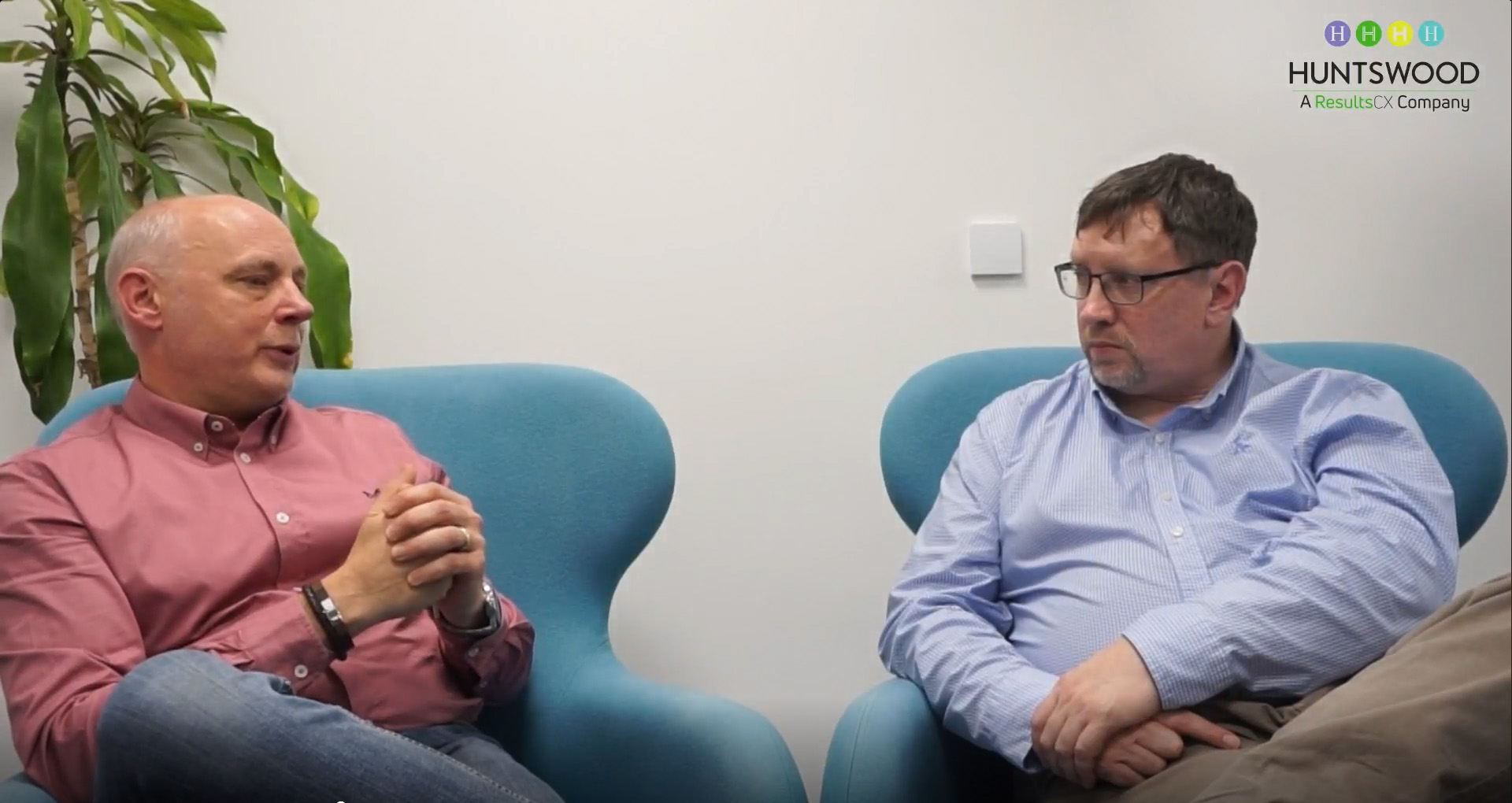Share

The pensions sector has seen and will continue to see significant change over the coming years. There have been several legislative and regulatory changes recently that are all designed to improve retirement outcomes. This was further demonstrated by the FCA’s most recent research and subsequent policy updates regarding Defined Benefit pension transfers.
With even more changes on the horizon, and the current global climate to consider, Zein Al Bader, Director of Insurance and Wealth at Huntswood, took the opportunity to catch up with Former Pensions Minister, Member of the House of Lords and Huntswood Advisor, Baroness Ros Altmann.
Our expert insight keeps you up-to-date on the latest industry developments and regulatory changes, providing the guidance needed to drive better outcomes for your business and your customers.
Listen and subscribe
All our podcasts are available to listen and subscribe to on your favourite podast player
If you would like to get in touch regarding future podcast topics or would like to contact the speakers please do send us an email: externalengagement@huntswood.com
Read the full podcast transcript
Drive better outcomes with the Huntswood Podcast.
Zein Al-Bader:
Hello and welcome to the latest episode of the Huntswood Podcast. Thanks for joining us. My name is Zein Al-Bader and I'm the Director of Insurance and Wealth here at Huntswood. And today we're going to be focusing on the pension sector, as it's fair to say the sector has and will continue to see significant change. Over the years, we've had a number of legislative and regulatory changes, all designed to improve retirement outcomes. And this was further demonstrated by the FCA's most recent research and subsequent policy updates regarding defined benefit pension transfers. So with changes afoot, I took the opportunity to catch up with a former pensions minister, member of the House of Lords and Huntswood adviser, Baroness Ros Altmann. Ros, welcome and thanks for joining us today. I wanted to start by asking you how your daily life has changed as a result of the COVID-19 pandemic.
Ros Altmann:
Well, it is astonishing how much it has changed. I used to go into Westminster pretty much every day. I was traveling to see clients. Suddenly all of that stopped and I'm working from home. Still very busy, learning new skills like Teams and Zoom and participating in debates remotely, which is actually very odd sometimes. You can't see properly the person's facial expressions, and you can't judge what other people are thinking at the same time. But you get used to it.
Zein Al-Bader:
That's really interesting, and to a different extent something which I'm sure all of our listeners can relate to. But I want to turn the focus now to pensions. What impact do you think COVID-19 has on the pensions market in particular?
Ros Altmann:
Well, certainly the initial phase of this pandemic and the impact that it had on financial markets threw a spanner in the works of many defined benefit pension schemes. And although some of the markets have recovered, there is still this ongoing fear about what's happening, what's coming down the line, and also the impact on long-term interest rates of the further rounds of quantitative easing that we've had. Perhaps a trend to negative interest rates. We had that for a little while. That is a disaster for DB scheme funding.
Ros Altmann:
And I think a lot of trustees are frantically trying to take advice as to how best to control the risks, manage the risks and deal with the fallout of this crisis. It's mostly through the investment markets, but obviously you've also seen a number of increased inquiries from members who are concerned about what's happening with their pensions. And on the defined contribution pensions side, generally speaking, those who were invested significantly in equities will have had a terrible shock. As I say, to some extent there has been some recovery, but I think a lot of the plans that people might have had to assess what their risk tolerance is might be being reviewed.
Zein Al-Bader:
If I look back, Ros, at the significant changes to both legislation and regulation around retirement outcomes, the evidence to me suggests that there's still some way to go to make sure customers get consistently good outcomes. What I'd like to know is how successful do you feel the regulatory agenda has been around retirement?
Ros Altmann:
Hmm. That's a tricky one, isn't it? I think it depends who you speak to. And it depends what perspective you're looking from. From the providers' perspective, I think the regulator has been trying to help providers improve processes and outcomes in a measured manner and not require draconian changes all of a sudden. From a customer's perspective, that may mean that those providers that were not operating as well as one would have hoped have been able to continue not to serve their customers as well as the regulator would intend.
Ros Altmann:
So it is a tricky one. What I feel is inevitable is that there will be increased focus on customer outcomes and on transparency. I think a lot of the problems that have been identified have surrounded the issue of transparency, disclosure of fees, disclosure of charges, explanations of the types of investment that people are invested in and the risk levels that are associated with that.
Ros Altmann:
Information, guidance and advice are all really important in this area, and the regulator has not been as clear as many providers would have hoped in explaining what it expects them to do. So a number of providers are saying, "We want to comply, but we're not exactly sure what compliance or brilliant compliance looks like." And that's a problem. If the regulator has an agenda and want providers to do something differently, it does need to be really clear about what it expects, what it needs and what good looks like. And too often, in the past certainly, and I fear perhaps now, there is this element of, "Well, this is the framework that we say you need to fulfill. You go ahead and you do it in the way you think fulfills it. If not, we'll come and challenge you." And that's more difficult for providers than a clear statement of what they need to do and what good looks like.
Zein Al-Bader:
Ros, if we turn our attention more specifically to the subject of defined benefit transfers, I know back in March that when the UK was initially put into lockdown, you called for a six-month pause on any DB transfers. At the time, it was because of the market turmoil caused by the pandemic. The FCA has subsequently outlined a package of remedies regarding defined benefit transfers. Do you think that they go far enough?
Ros Altmann:
Actually, I think there's a lot of merit in the measures that the FCA is now talking about. Personally, I wish they had been in place some time ago, but I do think that it would be wise to allow and facilitate a pause in transfers, except in the cases such as are outlined by the FCA in its latest guidance. In cases of terminal illness or in cases of extraordinary financial hardship, then there is an urgency, but for most people there isn't the same urgency to transfer. As the FCA says, there are often circumstances in which people have been encouraged to transfer more for the benefit of the advisor than the benefit of the customer, and that's not ideal.
Ros Altmann:
But what I'm particularly concerned about with the transfer value quotations that are happening at the moment is that the markets are so unstable and so volatile, and the interest rate outlook and the funding outlook is so uncertain, that people who are transferring out at these incredibly generous CETV levels could be selecting against the remaining members. And the worst that can happen if you delay transfers is that people stay in the scheme. That's not a terrible outcome. Especially I'm concerned about those who say, "Well, the employer might go bust, so I need to take the money out." But actually with the pension protection fund in place, the idea of getting even the PPF level of benefit protection for many people may still be better than moving to a defined contribution scheme or cashing out and paying the tax. That's the issue.
Ros Altmann:
I fear that we are not yet quite fully cognizant of the damage that's being done to define benefit pension scheme funding. And there is going to need to be more attention paid to the fact that the Section 75 requirements for employers to be able to get rid of the risk of their DB scheme have become so expensive that they're unrealistic. And in the current environment where we need to encourage as many companies as possible to survive and grow, requiring this amount of money to be allocated to a pension scheme takes resources away from other areas. So I think there is a big debate to come about what is an acceptable level of funding by employers.
Ros Altmann:
And the regulator may start to need to look at that more seriously as we go through the next 12 months. But it is a really uncertain time. And that's why I feel transfers now, if they're not really vital, are unlikely to be advisable for the point of view of the scheme or the member. And of course the FCA measures are not actually going to be in place yet for a few months. So you have still got the old problems that may impact those members who are still looking to transfer. And certainly I've seen a number of examples where so-called advisors are trying to entice people to take their transfers now. One has to wonder whether that's because they know the contingent charging ban is coming down the line and are trying to accelerate as much revenue as they can manage. At the moment, there isn't a sign that there's a massive increase in transfers. In fact, it's the opposite, since lockdown, as far as I can tell. But we need to be very careful about this.
Zein Al-Bader:
Sticking on the theme of contingent charging, we know the FCA is attributing this as one of the key causes of poor outcomes when it comes to DB transfers. To what extent do you believe banning contingent charging will raise standards?
Ros Altmann:
I think banning contingent charging certainly has the potential to raise standards. Whether it will do so or not, we shall see. And clearly, contingent charging isn't the only issue which caused the problems that the FCA is trying to address, but it is the one that's probably easiest in the short term to remedy. The increase in qualification requirements and the investment qualifications for advisors, I think that's very sensible, and again probably should have been done a while before.
Ros Altmann:
But at the end of the day, it has never really made sense to me to have a contingent charging model. I see financial advice as a profession, and the value of good, independent financial advice from an expert who could look at all your circumstances can save you far more than you would pay in the actual fees. And if the advice is not to transfer, that can save you a huge amount of money too.
Ros Altmann:
The problem is this legacy we've got where people somehow expect that financial advice is free. Nobody would expect an architect to design your house or an extension to your house without you paying them. They're a professional, they know what they're doing, and they can tell you how best to do it. You might want to extend your house and have a three-bedroom instead of a two-bedroom, but they might tell you that's impossible and you would have to accept that. The same sort of thing here. You might think, "Oh, I want those tens of thousands of pounds from my DB scheme," but your financial advisor may explain to you why that's just not in your best interest. It's not a good idea. Paying for that advice is worthwhile. The idea that the only way the advisor gets paid is if they tell you you should transfer is inevitably going to be a distortion. However ethical and honest and open the advisor is, there will always be some who will be tempted by that.
Ros Altmann:
So I think the idea of paying an advisor for their expertise... And if it costs a few thousand pounds to be told it's not in your best interests to stay in the scheme, it's worth paying, in my view. If somebody doesn't want to pay for that, again, what's the worst that will happen? They won't transfer, and that's not necessarily a bad outcome.
Ros Altmann:
However, I am attracted by this idea of abridged advice, to have an initial filter and initial conversation and explanation of why, just on a cursory look or an overview look at your circumstances, explaining that it might not be advisable for you to transfer. And it seems to me that we have the ideal funding mechanism for that built into pensions now with the £500 pension advice allowance. You can take that money tax-free, get your abridged advice. It can come out of the scheme. And I would encourage and hope that the regulator would encourage DB trustees to use the scheme-pays mechanism that we already have for other purposes to pay that, say, £500, £300, I don't know what the cost of the abridged advice will be, so that members do have an initial independent assessment, or discussion at least, of the benefits and the risks of transferring out.
Ros Altmann:
If you've got a tiny DB entitlement of £10 a week in a scheme and you've got other DB entitlements elsewhere, it might well be worth you taking those tens of thousands of pounds out of the scheme. If this is your only DB and your only secure pension apart from the state pension, that's a different matter. But a lot of people have a number of deferred pensions in a few schemes, three, four, five, six schemes, for example. In that case, there may be merit for the advisor to say, well, it might be worth you transferring some of those and keeping others, because the death benefits of pensions in a DC scheme are so much better than in a DB scheme. And taking your money out and putting it into a DC scheme and saving it to have a fund for care, for example, later life care, there are merits in that too, as long as you're not taking away all your secure income.
Ros Altmann:
So these are not straightforward decisions, but if an individual understands what parameters are, and it's not just about, "Oh, let's take tens of thousands of pounds," which sounds ever so attractive, then that abridged advice could really, again, help improve the quality of advice for members and improve the protection or the peace of mind for trustees to know that if someone is transferring out, they've at least understood what they're doing.
Zein Al-Bader:
Thanks Ros. And just staying on the theme of financial advice, I've heard you recently speak about those with access to good financial advice being able to cope better with market corrections, as well as being able to understand the advantages of long-term pension investing. What more do firms need to do to ensure people receive high-quality financial advice?
Ros Altmann:
I think the quality of financial advice on offer is actually pretty good in most cases. The problem we've got is that we've got some rogues and fraudsters who are tarnishing the brand in very worrying ways. And that goes back to the issue of the cold-calling, the suckers lists, the unregulated lead generators who are interfering in the concept of what advice is in a very unhelpful way. And I just hope that we can do better at dealing with that, because so far, we haven't really made enough progress at all. The idea of improving qualification standards, I think that's important.
Ros Altmann:
But I do believe that being able to discuss the investment processes and risks and where the markets are relative to value can be so helpful to individuals, because the initial reaction of most people when the markets crashed was to sell. And an advisor who's looking at the long-term and who can help you see the history of previous market crashes and the ways in which people panic out at the bottom and then regret it later are so important in a crisis situation. And if you don't have an advisor, it's natural. The human instinct is to say, "Oh my God, everybody's selling. I'm going to sell."
Ros Altmann:
And once you've sold, you've missed the turn, if the turn is coming soon. And also, even if the turn isn't coming soon, once you've sold, you may not go back in in the next year or two when the turn might come again. So helping people understand that investment markets and investment risk isn't something to be automatically frightened about, but it's something that you can help manage and think about in the very longer term, not just what's happening next week or next month.
Ros Altmann:
Many people have done very well by riding out market corrections. Markets were at record highs across the globe over the last period, and then suddenly they crashed. We've seen that before, and then markets have gone on to higher levels in future. I'm not saying that will happen now. And if you take it as an opportunity to assess the investments that you've got and say, "Well, how do these fit with what looks like it could be the new situation coming forward?" and adjusting a portfolio, is very different from saying, "I'm just selling out because I can't take the risk." If you want the rewards, you can't get those without taking the risk. And the advisor who can help you see that just sitting in cash has been the worst thing that you could have done is worth a huge amount of money. And that advice is worth paying for, to give you the peace of mind and to help you avoid making very bad decisions.
Zein Al-Bader:
And just to finish, I think we'd all agree we're heading into uncertain times, both socially and economically. But if I were to give you a crystal ball, how would you see the market evolving over the next few years?
Ros Altmann:
I don't think anybody, hand on heart, can honestly predict for you what is coming down the line. My best guess, but as with all economic forecasts, it is only a guess, is that we still have more central bank action to come to support markets. But ultimately I fear that the levels of debt that we have built up are wholly unsustainable, and therefore there will have to be some debt forgiveness. The big question then is whose debt will be forgiven, how will it be forgiven, and what would you want to do to protect yourself? I, again, don't think anybody has the answers. So my best suggestion for people is to have a diversified portfolio. Don't put all your eggs in one basket. Don't just back one type of investment or one type of risk. Have some contingency in there for bad times. Don't expect that it's going to be plain sailing.
Ros Altmann:
But if you're just looking over the next year or so, it is entirely possible that central bank action will keep supporting markets as it has done. But I have to say that it is equally possible that confidence will crack. So far it hasn't. I mean, we've had periods when it has, but then it's come back again. And there could be political risk, and then all bets are off. It's hard enough to forecast the economy, and it looks as if the economy is going to suffer a significant setback, but as far as politics is concerned and what that might do to markets, nobody has ever been able to predict that. Lots of things that have happened on the political scene, we could never have envisaged.
Ros Altmann:
So we are at a very important juncture for the global economy and for global relationships, whether it's trade relationships or security relationships. There are big question marks out there at the moment. And that's why I would say you do need to be diversified, and you do need to have some buffer of safety if you can find some. Just watching carefully what the political developments are.
Ros Altmann:
And of course you may get tax changes, which will affect pensions in either positive or negative ways. So again, a big change in the tax regime could have a more dramatic effect, even, than some of the market moves, depending on what changes happen. So we have to live with uncertainty. I think that's the bottom line. We have to do our best to manage the uncertainty, manage our way through the uncertainty and diversify the risks that you're taking when you're looking at a long-term portfolio that you hope will support you in the future decades, not just in the future months.
Zein Al-Bader:
That's excellent, Ros. Thank you. Some really great insight into the pension sector as a whole there, especially as we continue to head into such uncertain times.
Zein Al-Bader:
If you found this podcast insightful, or would like to hear more from our experts and guests, just keep an eye on our website. Next time I'll be speaking to Paul Dyer, Huntswood's head of regulatory risk and assurance, about the specific implications of the FCA's new guidelines on DB pension transfers and what considerations firms will need to be making. Alternatively, just head over to www.huntswood.com/insights. You can sign up to our mailing list and we'll make sure we keep you up to date with our white papers, blogs, videos, and yes, you've got it, more podcasts. Thanks very much for listening.
Speaker 3:
Drive better outcomes with the Huntswood Podcast.









